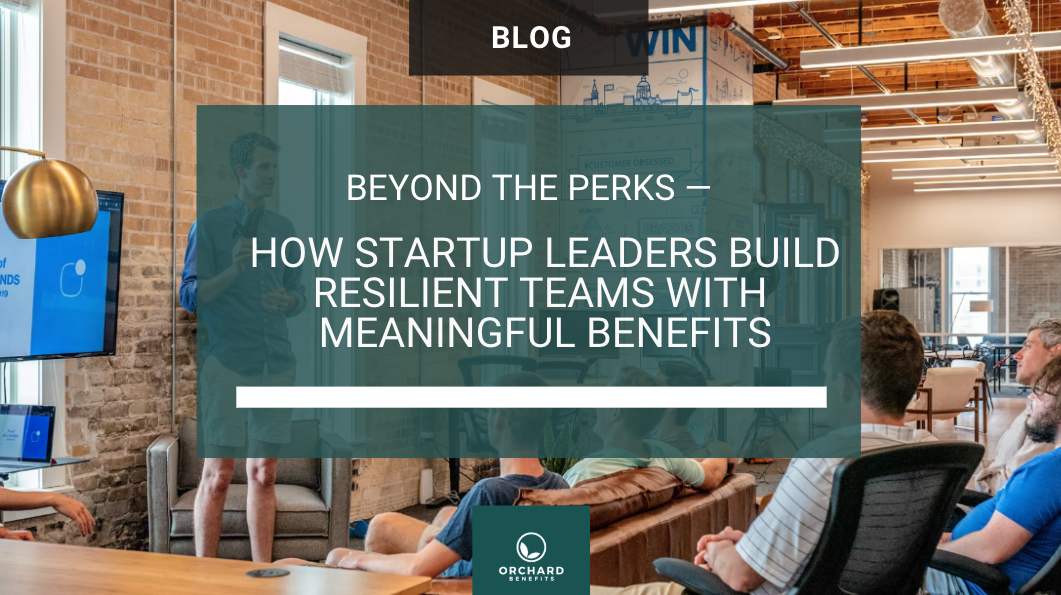Startups don’t win on perks. They win on people. Free snacks and a cool office won’t keep employees around, especially in today’s economy. What does? Benefits that actually matter—healthcare, financial wellness, and the kind of support that makes employees want to stay.
The Shift from Job-Hopping to Stability
Just a few years ago, the job market was defined by rapid movement—employees jumping between roles for higher pay or new opportunities. But today, after waves of layoffs and economic uncertainty, priorities have shifted. Employees are done chasing gimmicks. They want real support—healthcare that covers what they need, financial wellness tools, and benefits that make a difference in their lives.
For startups, this presents a pivotal moment: The companies that invest in meaningful employee support—healthcare, mental health resources, and financial wellness—will attract and retain top talent looking for security in an unpredictable market. The Great Migration of talent has now evolved into a search for long-term stability, and the startups that recognize this shift will build more resilient, engaged teams.
The Real Value of Benefits Over Perks
In the early days of a startup, culture is everything. Founders work hard to create an exciting workplace with free lunches, happy hours, and team events. Those perks are nice, but they don’t solve the real concerns employees have—healthcare, financial security, and career growth.
What do employees actually value? Based on what we see working with startups every day, they want three things:
- Better healthcare, including mental health coverage that actually helps.
- More flexibility, like remote work options and meaningful time off.
- Real career growth, from mentorship to professional development opportunities.
Startups that focus on these areas don’t just keep their teams happy—they create stronger, more engaged companies.
How Benefits Build Stability in Uncertain Times
Startups operate in unpredictable environments—funding rounds, shifting markets, and evolving business models. During times of uncertainty, employees look to leadership for reassurance, because strong benefits build trust and serve as a stabilizing force.
When employees know their health, finances, and well-being are covered, they stay committed. Employees see that leadership isn’t just offering perks for show; they’re making real investments in the well-being of their people. A startup that takes care of its team creates a culture of loyalty. And in a competitive market, loyalty is one of the most valuable assets a company can have.
Building Stability in Uncertain Times: How Benefits Strengthen Teams
Market shifts, funding rounds, and evolving business models create an environment of uncertainty for startups. In these moments, employees look to leadership for reassurance, and strong benefits serve as a stabilizing force. Nearly half of Canadian employees aim to enhance their well-being through workplace benefits, yet 50% feel their current plans are inadequate, and 40% believe their employers don’t prioritize mental health.
We see it all the time—startups that invest in better healthcare, real flexibility, and financial wellness keep their best people. The ones that don’t? They lose talent to companies that do.
By investing in a benefits structure that prioritizes stability, startup leaders build trust and demonstrate long-term commitment to their teams.
How Startup Leaders Can Drive Retention
Retention isn’t just about the benefits themselves—it’s about how leaders communicate and support them. Startup founders and executives set the tone. If leadership openly values work-life balance, mental health, and financial security, employees will feel empowered to prioritize their well-being too.
Here’s how leaders can make an impact:
- Offer benefits that actually meet employees’ needs, like childcare support, fertility benefits, or student loan assistance.
- Communicate benefits clearly, so employees understand what’s available and how to use them.
- Encourage time off and work-life balance, by leading by example and fostering a culture where people don’t feel guilty for taking breaks.
Thriving Startups Put Employees First with Benefits
Startups that prioritize well-being don’t just retain employees—they cultivate engaged, high-performing teams. Consider these examples: one fast-growing fintech startup strengthened team loyalty by introducing flexible work policies and dedicated mental health days. A scaling SaaS company empowered employees with financial planning resources and wellness stipends, creating a more focused and motivated workforce. A remote-first tech firm deepened employee trust and satisfaction by expanding healthcare benefits to include comprehensive mental health support.
By investing in meaningful benefits, startups lay the foundation for long-term success.
Rethink benefits as a long-term investment, not a cost
The best startup leaders understand that their greatest asset isn’t their product—it’s their people. Instead of superficial perks like free snacks or ping-pong tables, these companies focus on comprehensive healthcare, mental wellness support, financial planning, and flexible work structures—policies that directly impact productivity, retention, and overall job satisfaction.
The best talent isn’t looking for gimmicks. They want real support—healthcare, financial security, and work-life balance. Smart startups get this because they’re the ones that invest in their people—and win because of it. If you’re ready to build benefits that actually help your team thrive, let’s talk.


